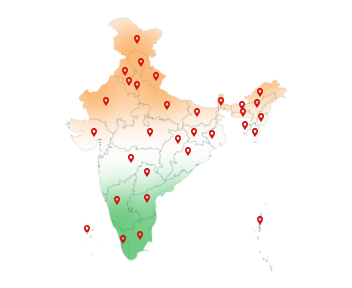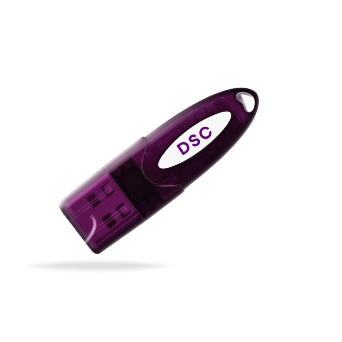20-Nov-2025
Digital Signature & Electronic Signature Under IT Act 2000
Digital transactions have become the backbone of modern business, governance, and compliance in India. This transformation has been made possible by several powerful digital tools and initiatives. Among them, two key instruments are the Digital Signature Certificate and Electronic Signature.
But have you ever wondered where this new digital infrastructure gets its legal validity from? IT Act, 2000.
Digital signature and electronic signature under IT Act 2000 get legal recognition. This is making secure digital signing a trusted and essential part of everyday life.
Need a Digital Signature Certificate? Buy Capricorn DSC instantly!
What is Information Technology Act, 2000?
In the past, electronic records or online signatures had no legal status. This meant agreements, filings, and business processes were still heavily dependent on paper.
The Information Technology Act, 2000 (IT Act) is the primary law in India governing electronic records, digital communication, cybersecurity, and electronic signatures. It was introduced at a time when the internet was rapidly evolving. The Act aimed to provide a legal framework for conducting secure digital transactions and recognizing electronic documentation as valid and enforceable.
How did the Information Technology Act, 2000, change everything?
1. Giving electronic records the same legal value as paper documents
2. Allowing the use of Digital Signatures and later Electronic Signatures for online authentication
3. Setting up the Controller of Certifying Authorities (CCA) to manage and regulate Digital Signature Certificates
4. Helping companies and government departments move from paper to secure, paperless processes
5. Creating the base for e-governance, online filings, and digital verification systems
Legal Validity: Digital Signature and Electronic Signature under IT Act 2000
The IT Act, 2000, clearly defines how digital and electronic signatures are recognized in India and when they are legally valid.
The Act provides a solid legal foundation through specific sections that outline its authenticity and enforceability.
Section 3 – Digital Signature
Section 3 says that a Digital Signature in IT Act is valid if it is created using:
- A private key (to sign)
- A public key (to verify)
This method ensures two things:
- The signer is genuine
- The document has not been changed
Because of this strong security, Digital Signatures are used for government filings, tax returns, banking, and other official work.
Section 3A – Electronic Signature (Introduced in 2008)
Section 3A allows other safe and reliable methods of signing, such as:
- Aadhaar-based eSign
- OTP + eKYC based signing
Did you know?
Electronic Signatures were not part of the original IT Act, 2000.
They were added later through the Information Technology (Amendment) Act, 2008.
Section 5 – Legal Recognition
Section 5 states that any electronic signature that follows the rules of the IT Act is legally valid, just like a physical signature.
What is a Digital Signature?
A Digital Signature is a secure, cryptographic method of signing documents electronically. It works using a pair of digital keys. A private key (kept safely by the user) and a public key (used to verify the signature). This technology ensures the highest level of security and authenticity.
A Digital Signature proves three things:
1. You are the real signer (Authentication)
2. The document was not changed after signing (Integrity)
3. You cannot deny signing it later (Non-repudiation)
What is an Electronic Signature?
An Electronic Signature (eSignature) is a simple and convenient way to sign documents online without using a USB token or certificate file.
Unlike Digital Signatures, which use cryptographic keys, Electronic Signatures rely on easier methods such as OTP verification or Aadhaar eKYC.
How DSC and eSign Help in Compliance & Security?
Both Digital Signatures in IT Act and Electronic Signatures play a major role in maintaining security and legal compliance:
1. Ensures Identity Verification
Digital Signatures and eSign verify the signer's identity using high-level security.
2. Provides Legal Proof
Both types of signatures offer strong legal proof under the IT Act, 2000. This helps in audits, compliance checks, and resolving disputes.
3. Meets Regulatory & Industry Requirements
Digital and Electronic Signatures help organizations comply with multiple regulations, including:
- Follows IT Act, 2000 and CCA guidelines.
- Used in MCA, GST, Income Tax, DGFT, banking compliance, and more.
4. Reduces Fraud & Misuse
Because every signature is authenticated and recorded, it becomes extremely difficult to forge or tamper with documents.
If you need a Digital Signature Certificate that is fully compliant with the IT Act and CCA guidelines, buy Capricorn DSC.
Final Words
The Information Technology Act, 2000, laid the legal foundation for electronic authentication in India.
By formally recognizing Digital Signatures under Section 3 and Electronic Signatures under Section 3A, the Act ensured that documents signed digitally carry the same legal weight as handwritten signatures.
FAQ
1. What's the difference between an Electronic Signature and a Digital Signature?
OR
What is the difference between a Digital Signature and an Electronic Signature under the IT Act, 2000?
Difference between digital signature and electronic signature under IT Act, 2000
Digital Signature under IT Act 2000 are cryptography-based signatures defined in Section 3, while Electronic Signatures are other approved forms of electronic authentication introduced through Section 3A in 2008.
2. Which section of the IT Act, 2000 covers Digital Signatures?
Digital Signatures are covered under Section 3 of the IT Act, 2000.
This section defines the use of asymmetric cryptography and hash functions to create legally valid digital signatures.
3. What is Section 72 of the IT Act, 2000?
Section 72 deals with the penalty for breach of confidentiality and privacy.
Anyone who, without consent, discloses electronic records, personal data, or information obtained during official duties can face imprisonment and/or a fine.
4. What is the purpose of Section 73 of the IT Act, 2000?
Section 73 covers the penalty for publishing Digital Signature Certificates (DSCs) without authorization.
Digital Signature Certificates can only be issued by Certifying Authorities authorized by the Controller of Certifying Authorities (CCA). One of the leading and most trusted DSC providers in India is Capricorn CA.
If someone publishes or shares a DSC knowing it is false, expired, or revoked, they can be penalized under this section.
5. What is Section 57 of the IT Act, 2000?
Digital signature and electronic signature in cyber law matter a lot.
Section 57 provides the right to appeal to the Cyber Appellate Tribunal.
If a person is unhappy with an order issued by the Controller (such as the CCA) or an Adjudicating Officer, they may appeal to the Tribunal for review and relief.


